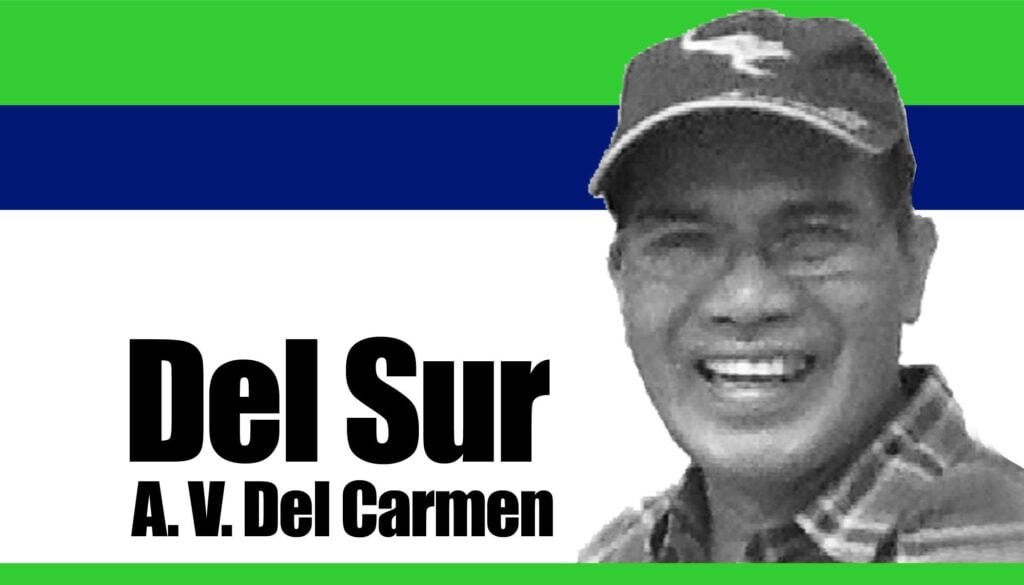
The past days and nights have been unusually busy after I volunteered to help school paper advisers under the Division of Negros Occidental, prepare their student writers for the Regional Schools Press Conference scheduled in Iloilo City on a staggered schedule on May 20-25.
Newly-installed lawyer Joevel Bartolome, my former student and now also a media colleague, helped set up a group chat platform that connected me with the grade and high school paper advisers.
The task was no different from classroom teaching – I had to prepare the lessons, update my grasp of journalistic writing and of the DepEd guidelines for NSPC 2024. I realized, however, that my audience belong to the graduate school level as they are professional teachers, many of whom have post-baccalaureate degrees and education.
And so, from May 10 to 18 – for 45-60 minutes per session – we had nightly virtual meetings that covered both technical and mechanical aspects of journalism – which was first conveyed as chat messages.
Challenged to make the meetings, which I later called “conversations”, interesting midway during the nine-day mentoring, I made use of my phone’s features that allow me to create ‘posters’ using photos I have on file and presented mini-lectures simulating a power point slide presentation.
Each night’s lesson is based on questions earlier sent by the advisers. From a group, which started to have under-40 followers, the ‘attendees’ trebled in number that as of the last count, it already reached almost 120.
The spread of participants is wide – from the northern town of Calatrava to the mountain schools in Candoni and the coasts of Cauayan.
The volunteer work sparked great interest in me that I am now considering a similar initiative – on a broader audience scope – in the near future.
The growth in the number of followers of the nightly interactive sessions inspired me midway during the period to tag a name to it based on an earlier training program series I initiated – JOURNEY, or Journalism Education for Young Negrenses.
Spontaneously, I started labelling the mentors’ online training as JOURN-VERSATIONS, a name which gained the approval of my media friends and ‘clicked’ with the participating advisers.
JOURN-VERSATIONS has led to forging and reinforcing friendships with mentors in the province. Our last session – prior to RSPC – gave me renewed energy to pursue journalism education – seven years after retiring from the university – and five years after teaching Media Literacy in a senior high school.
The words of thanks and appreciation shared by the participants deeply touched and inspired me that I am now thinking of more effective ways I can help popularize Journalism to a wider audience in the region and country.
I reiterate my thanks to the participants, especially those who continuously filled their vessels with the inputs shared and consistently asked questions to widen their knowledge, and to Ma’am Riza Gea, division journalism program coordinator, for the continued trust and confidence in our capability in mentoring the mentors.
When I applied for an international grant that allowed me to pursue higher education in journalism, I was asked why I wanted to do graduate work in the field. My answer came quick: Just how important to me the value of learning more so I could enhance my newspapering skills, was the personally-felt need to respond to strengthen journalism education – through developing communication schools and campus publications.
JOURN-VERSATIONS is making me come full circle.
Tedious and tiring, especially because of my present physical condition, but I have enjoyed it, immensely.
***
Friday (May 17) was observed as World Telecommunication and Information Society Day.
May 17 marked the anniversary of the signing of the first International Telegraph Convention and the creation of the International Telecommunication Union.
The observance this year, UNESCO said, offered “the chance to explore how digital innovation can help connect everyone and unlock sustainable prosperity for all.”
The celebration focused on the theme, “Digital Innovation for Sustainable Development”. The theme promotes the idea that “digital innovation can help tackle the world’s most pressing challenges.”
The international organization, in explaining the significance of the occasion, pointed that with 2.6 billion people still unconnected, glaring digital gaps hinder innovation across much of the world.
“Many countries – lacking key policies, investments, and digital skills – are struggling to keep up in today’s fast-changing digital landscape, UNESCO said, adding that WTISD this year served as a reminder “of the progress yet to be made to ensure that everyone can benefit from digital technologies.”
The annual observance aims “to help raise awareness of the possibilities that the use of the Internet and other information and communication technologies can bring to societies and economies, as well as of ways to bridge the digital divide.”
Truly, the possibilities are wide, expanding to almost limitless.
***
If your gift is serving others, serve them well. If you are a teacher, teach well. (Romans 12:7) | NWI




